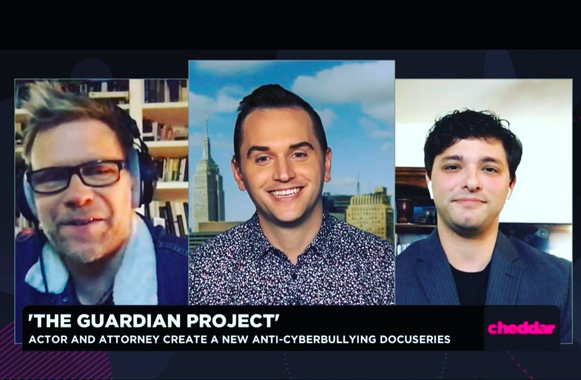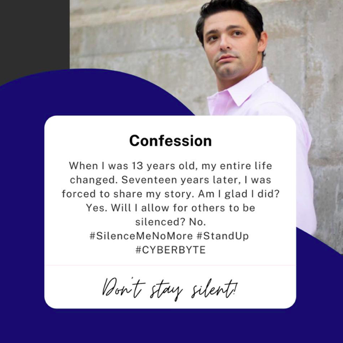Business
Attorney and Media Consultant Andrew Rossow Uses Online Reputation Management to Help Young Hollywood

Today’s content creators have had to fight an uphill battle for maintaining relevance in their respective industries. Since TikTok has emerged as arguably the top content creation platform, age has certainly become a major divider in the influencer space, with millennials and Gen-Z looking to how these young kids are able to captivate their communities instantaneously and impactfully.
But TikTok aside, with everyone online and taking to new video streaming platforms like Clubhouse and Lunchclub, among others, the level of creativity required to “be seen” is exponentially more difficult, compared to what it would have been just a year ago.
Andrew Rossow, a media consultant in Saint Petersburg, Florida officially launched AR Media Consulting, which helps provide visibility to his fellow demographic of young entrepreneurs, academics, and public figures from a wide array of industries. Online reputation management, or ORM, is a necessary component to any brand, small or large. “We all have a story to tell and to do that, requires a constant nurturing of our personal brand, and an understanding of how SEO or search engine optimization works.”
Rossow, 31 is also a licensed attorney, helping clients throughout the State of Ohio navigate through and overcome the dangers the opioid crisis has brought, specifically to the Montgomery County area. Additionally, he teaches as an adjunct cyberspace law professor at The University of Dayton, his alma mater.
Where AR Media excels, according to the millennial CEO, is the vast professional network Rossow has built over the years. “Networking is a skill that simply can’t be taught, and it never ceases to amaze me how lacking our generation is when it comes to making connections,” Rossow says.
“What I’ve been able to do over the years, is develop my own web of professional relationships, built upon trust, cadence, and loyalty. I’m a walking rolodex and that’s value you can’t buy.”
From California and Texas, to Florida, Chicago, and New York, AR Media sees no bounds, having expanded to international markets, including but not limited to Russia, China, Germany, and Belarus. While only recently incorporating AR Media, Rossow has been hard at work since 2016, conducting business purely by word of mouth.
He has worked with a number of high-profile individuals, including but not limited to Kevin Harrington, the original ‘shark’ on ABC’s Shark Tank and founder of the “As Seen On TV” infomercial line, Ritesh Patel, CEO and co-founder of The Ticket Fairy, Nashville’s Jesslee (S14 The Voice), actor Jason Gann (Wilfred on FX), EDM DJ Gareth Emery, Hollywood product agent, Lorenzo Rusin, Billy Ray Cyrus, John Rich of Big & Rich, David McElroy, Pagentri, among others.
But it’s not just Hollywood talent and Silicon Valley’s brightest that Rossow works with, tailoring his expertise to those more unconventional clients–the everyday entrepreneur and academic, including college students, photographers, and data scientists.
“Regardless of the size of your investment portfolio, everyone has a story to tell, and today’s media landscape has made it increasingly difficult for young entrepreneurs to be heard,” Rossow told Big Time Daily. “Social media platforms have made ‘visibility’ even more challenging, unless you are prepared to invest hundreds and potentially thousands of dollars into an Ad Manager.”
The young entrepreneur has appeared on national platforms like Cheddar TV, WFAA ABC, Fox4, and CBS in Dallas. He has also regularly appeared on Dayton’s ABC, FOX, and NBC affiliate networks for his unique insight into trending cybersecurity topics.
“It’s time for everyone to be heard, regardless of the medium,” Rossow emphasized. “My passion is to help jumpstart the careers of those who are inspired to do good for their communities. Whether you are a graduate student in law or medicine, or a rising musician, there’s a story to be told, and you have every right to share it with your followers.”
The problem, according to Rossow, is that everyone is now online and wanting to take their e-commerce and/or personal brands to the next level.
“It’s why we see so many copycats for reputable thought leaders like Gary Vee, Grant Cardone, The Millionaire_Mentor, and Dillon Kivo. These are individuals who understand both the informative and aesthetic aspects of branding. And it’s clearly working. But there are always smaller gaps to fill, left behind by individuals of this caliber, because they’re focused on the bigger picture. AR Media serves to fill in the missing piece to that puzzle, providing a solid branding management team.”
Part of AR Media’s mission is to also teach good digital hygiene to clients as well as other users online. Rossow created #CYBERBYTE, a trademarked anti bullying movement that encourages folks to record short PSAs about standing up against online bullying to their own community of followers.
“By working with others who share in that vision like JessLee’s STRONG program and Bubba Almony’s Bodyguards Against Bullying, we are able to capitalize off one another’s resources to help provide a well-rounded program for those brands focused on community impact.” Taking #CYBERBYTE to the next level, Rossow made an even bigger move earlier this summer, announcing that he was joining forces with TV actor Mark Pellegrino (13 Reasons Why, Supernatural, Being Human, Dexter, Lost) to co-launch The Guardian Project, a multi-tiered attack on the bullying epidemic.
Both Pellegrino and Rossow, who share eerily similar stories with their own personal experiences with bullying, successfully funded their Kickstarter which will go to helping build out the first tier of the project: a docuseries.

Back in May, Rossow released a heart-warming revelation on Thrive Global that his drive for fighting against online-bullying stems from a traumatic experience at a summer camp when he was 13-years-old, where he was sexually assaulted by several members (and counselors) from his cabin. AboveTheLaw’s Brian Cuban, brother to Mark Cuban, spoke with Rossow about how today’s biggest issues involving bullying, #MeToo, and others impact the legal landscape.
“I don’t want anyone to ever feel the isolation and darkness I felt for all those years,” the young attorney explains. “Thankfully with mentors and friends like Brian, I’ve been able to address those demons over the years and help others who are afraid to speak out.”

Source: Instagram | @cyberguyesq
The two anti-bullying activists recently appeared on Cheddar TV, a millennial news network which runs off the floor of the New York Stock Exchange (NYSE). Rossow says that he has been blessed to be one of few who has thrived throughout the pandemic, aiding public relations agencies with their own clients, due to the decrease in resources, as well as film production studios and cannatech startups.
You can contact AR Media by emailing [email protected] and/or visiting the recently created Facebook page.
Business
Inside the $4.3B Quarter: What’s Fueling Black Banx’s Record Revenues

Every quarter brings fresh headlines in fintech, but few make the kind of impact achieved by Black Banx in Q2 2025. The Toronto-based global digital banking group, founded by Michael Gastauer, reported an extraordinary USD 4.3 billion in revenue and a record USD 1.6 billion in pre-tax profit, while improving its cost-to-income ratio to 63%.
These results not only highlight the company’s operational efficiency but also mark a pivotal moment in its journey from challenger to global leader. The big question is: what’s fueling such impressive financial performance?
Customer Growth as the Core Driver
One of the clearest engines of revenue growth is Black Banx’s expanding customer base. By Q2 2025, the platform had reached 84 million clients worldwide, up from 69 million at the end of 2024. This 15 million net gain in six months demonstrates both the attractiveness of its services and the scalability of its model.
Unlike traditional banks, which rely heavily on branch expansion, Black Banx leverages digital-first onboarding that allows customers to open accounts within minutes using just a smartphone. This approach is especially effective in regions underserved by legacy institutions, where access to affordable financial tools is in high demand.
More customers don’t just mean higher transaction volumes—they generate a compounding effect where network size, brand trust, and service adoption reinforce one another.
Real-Time Payments and Cross-Border Solutions
A major contributor to Q2 revenues is the platform’s real-time payments infrastructure. Black Banx enables instant cross-border transfers across its 28 supported fiat currencies and multiple cryptocurrencies, helping both individuals and businesses bypass the traditional bottlenecks of international banking.
For freelancers, SMEs, and multinational clients, this means faster liquidity, reduced foreign exchange costs, and simplified global operations. The demand for real-time financial services is growing rapidly—Juniper Research projects global real-time payments turnover to hit USD 58 trillion by 2028—and Black Banx is strategically positioned to capture a significant share of this market.
Crypto Integration as a Revenue Stream
Another key revenue driver is crypto integration. While many traditional institutions remain hesitant, Black Banx embraced digital assets early and has built infrastructure to support Bitcoin, Ethereum, and the Lightning Network. In Q2 2025, 20% of all transactions on the platform were crypto-based, reflecting strong customer appetite for hybrid banking services that bridge fiat and digital assets.
Revenue comes not only from transaction fees but also from value-added services like crypto-to-fiat conversion, staking yields (4–12% APY), and blockchain-enabled payments. For customers in markets with unstable currencies, these services act as a financial lifeline, further expanding the platform’s relevance.
AI-Powered Efficiency and Risk Management
Record revenues would be less impressive if costs ballooned at the same rate. But Black Banx has proven adept at balancing growth with efficiency. Its cost-to-income ratio improved to 63% in Q2, down from 69% a year earlier, thanks to heavy reliance on AI-powered automation.
AI now drives fraud detection, compliance, and customer onboarding—areas where traditional banks often struggle with cost inefficiencies. By automating these processes, Black Banx can process millions of transactions securely while maintaining profitability at scale. This level of efficiency is rare in fintech, where high growth often comes at the expense of margins.
Regional Expansion and Untapped Markets
Geography also plays a role in fueling revenues. Much of the Q2 growth came from Africa, South Asia, and Latin America—regions where demand for mobile-first banking continues to soar. In 2024 alone, Black Banx reported a 32% increase in SME clients from the Middle East and Africa, signaling the strength of its positioning in underserved markets.
By extending services to populations previously excluded from formal banking—migrant workers, rural communities, and small businesses—Black Banx taps into vast pools of latent demand. The strategy proves that financial inclusion and profitability are not mutually exclusive but mutually reinforcing.
Diversified Revenue Streams
Another factor behind Q2’s record revenues is Black Banx’s diversified business model. Income is not tied to a single service but spread across multiple streams, including:
- Transaction fees from cross-border transfers and payments.
- Crypto trading and exchange services.
- Premium account features for high-net-worth clients.
- Corporate services for SMEs and international businesses.
This diversification insulates the company against volatility in any single segment, creating stable revenue growth even in shifting market conditions.
Michael Gastauer’s Strategic Blueprint
Behind these results is Michael Gastauer’s long-term strategy: scale aggressively but with efficiency, innovation, and inclusion at the core. His vision has always been to create a borderless financial ecosystem, and Q2 2025’s performance is evidence that this vision is not only achievable but sustainable.
By balancing mass-market accessibility with premium features, and by blending fiat with digital assets, Gastauer has positioned Black Banx as a category-defining player in global finance.
The Road Ahead: Toward 100 Million Clients
Looking forward, the company’s goal of reaching 100 million customers by the end of 2025 will likely be the next catalyst for revenue growth. More customers mean more transactions, more data insights, and more opportunities to refine and expand its service offering.
If current momentum holds, the USD 4.3 billion quarterly revenue milestone could be just the beginning of an even larger growth story. The challenge will be ensuring systems scale securely while maintaining trust in an environment where privacy and compliance are paramount.
A Record That Signals More to Come
Black Banx’s Q2 2025 performance—USD 4.3 billion in revenue, USD 1.6 billion in pre-tax profit, 84 million clients worldwide, and a lean 63% cost-to-income ratio—is more than a financial milestone. It is a signal of how the future of banking is being rewritten by platforms that are borderless, crypto-inclusive, and data-driven.
What fueled this record-breaking quarter is not one innovation but a combination of strategies—scalable onboarding, real-time payments, crypto integration, AI efficiency, and expansion into underserved regions. Together, they form a model that doesn’t just challenge traditional banking but actively builds the foundation for global dominance.
For Black Banx, the road ahead is clear: the $4.3 billion quarter is not an endpoint but a launchpad for even greater scale and profitability.
-

 Tech5 years ago
Tech5 years agoEffuel Reviews (2021) – Effuel ECO OBD2 Saves Fuel, and Reduce Gas Cost? Effuel Customer Reviews
-

 Tech6 years ago
Tech6 years agoBosch Power Tools India Launches ‘Cordless Matlab Bosch’ Campaign to Demonstrate the Power of Cordless
-

 Lifestyle7 years ago
Lifestyle7 years agoCatholic Cases App brings Church’s Moral Teachings to Androids and iPhones
-

 Lifestyle5 years ago
Lifestyle5 years agoEast Side Hype x Billionaire Boys Club. Hottest New Streetwear Releases in Utah.
-

 Tech7 years ago
Tech7 years agoCloud Buyers & Investors to Profit in the Future
-

 Lifestyle5 years ago
Lifestyle5 years agoThe Midas of Cosmetic Dermatology: Dr. Simon Ourian
-

 Health7 years ago
Health7 years agoCBDistillery Review: Is it a scam?
-

 Entertainment7 years ago
Entertainment7 years agoAvengers Endgame now Available on 123Movies for Download & Streaming for Free
